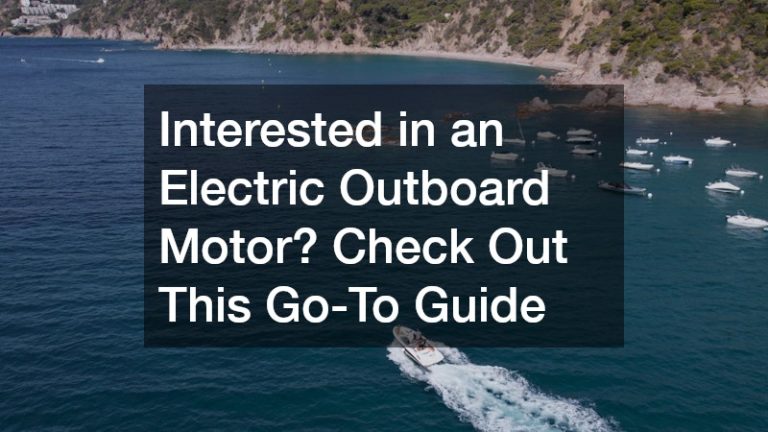Electric outboard motors are becoming increasingly popular among boaters for their eco-friendly nature and quiet operation. Whether you’re a seasoned sailor or a hobbyist, understanding these innovative motors can enhance your boating experience. In this comprehensive guide, we will delve into various aspects of electric outboard motors to help you make informed decisions and maximize your time on the water.
What are the Benefits of an Electric Outboard Motor?
Environmental Impact
Switching to electric outboard motors offers significant environmental benefits. Unlike traditional gas engines, electric motors emit zero direct emissions, drastically reducing the carbon footprint associated with boating. This is especially important as the world seeks cleaner energy solutions and greater environmental responsibility. Boaters who opt for electric motors contribute to the health of aquatic ecosystems and support global efforts to combat climate change.
Moreover, electric motors lead to cleaner waterways by eliminating oil spills and fuel leaks, which are common issues with gasoline engines. Reducing chemical pollutants not only helps preserve marine biodiversity but also ensures safer and healthier water for recreational use. Environmentally-conscious boaters find electric outboards to be a sustainable choice that aligns with their values.
Efficiency and Performance
Electric outboard motors are renowned for their efficiency and performance, providing remarkable propulsion while maintaining low running costs. Compared to internal combustion engines that are often subject to thermal inefficiency, electric motors convert a higher percentage of input energy into useful work, resulting in more energy-efficient operation. This not only extends the range of each charge but also translates into cost savings over time.
Advanced technology in electric motors ensures smoother and more responsive throttle control, offering boaters precise handling whether navigating through calm waters or challenging currents. This precision not only enhances the overall boating experience but also makes electric motors ideal for a variety of watercraft, from small fishing boats to sailboat auxiliary power.
Quiet Operation
One of the standout features of electric outboard motors is their quiet operation. Traditional outboard engines are known for their noise, which can disrupt the tranquility of nature and disturb aquatic wildlife. In stark contrast, electric motors run almost silently, preserving the serene experience that many boaters seek. This quietness allows nature enthusiasts to quietly observe wildlife and enjoy the subtle sounds of the water.
The reduced noise pollution also greatly enhances communication on board, making it easier for boaters to converse without shouting over the engine noise. This is particularly beneficial for families or groups seeking a relaxing day on the water, as it fosters a more enjoyable and cohesive outing. In competitive sailing or fishing, this quiet operation can also provide a tactical advantage, allowing more focused communication and less disturbance.
How to Choose the Right Electric Outboard Motor?
Power Needs and Motor Options
When selecting an electric outboard motor, understanding your power needs is crucial. The power of an electric motor is typically measured in kilowatts (kW) or horsepower (hp), and choosing the correct power level depends on your boat’s size and intended use. Smaller, inflatable, or lightweight boats may only require a motor with a few kilowatts, whereas larger vessels demand higher power for satisfactory performance.
Cost Considerations
Electric outboard motors generally have higher upfront costs than traditional gasoline engines, but they offer considerable savings over their lifetime. One of the most notable savings is on fuel; electricity typically costs significantly less than gasoline, leading to lower operating expenses. In many cases, solar power charging options further reduce costs and enhance the sustainability of your boating endeavors.
Battery Capacity and Charging
The battery is a key component of electric outboard motors, influencing both runtime and overall performance. Selecting the appropriate battery capacity ensures you have sufficient energy for your intended voyages without compromising on power. Consider factors such as typical trip distance, expected speed, and any additional onboard electrical needs when choosing a battery.
Conclusion
Adopting an electric outboard motor can offer significant advantages, from environmental benefits to cost savings. With the insights provided in this guide, you’ll be well-equipped to make an informed choice and maintain your electric motor for years of enjoyable boating. As the world moves towards greener technologies, electric outboard motors represent a forward-thinking choice that enhances your connection with the water while respecting the environment.











